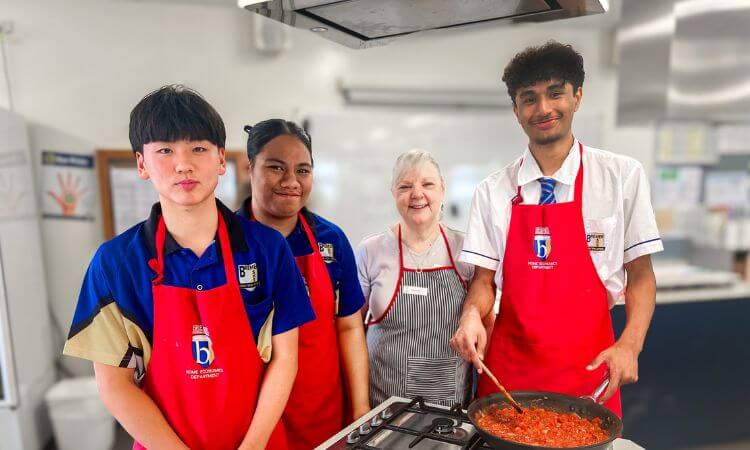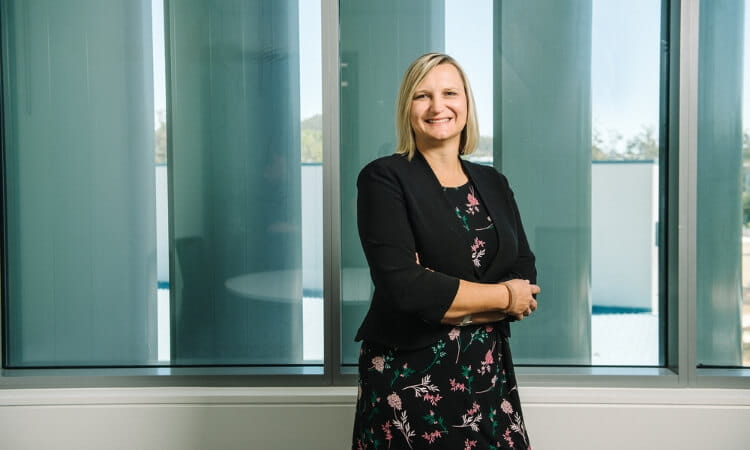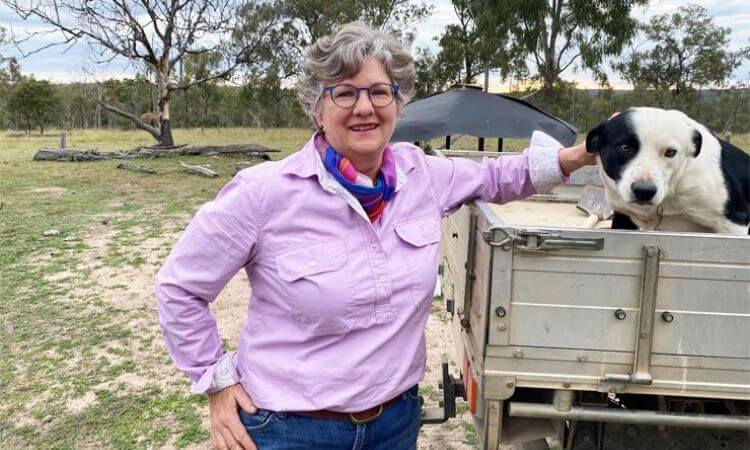It might have been hot in the kitchen, but not enough to perturb a group of Bremer State High School students.
About 60 student-athletes from the school’s high-performance academy sharpened their cooking skills this week, participating in the University of Southern Queensland’s (UniSQ) Eat 2 Win program.
The three-week program includes a one-hour hands-on cooking class and education sessions on nutrition, fuelling performance and hydration.
Program lead Dr Andrea Fuller said the program addressed the knowledge gap of how adequate and appropriate nutrition and hydration improves sports performance.
“Studies have shown that student-athletes generally have poor nutrition knowledge and often do not eat enough to fuel their training demands,” she said.
“Social media and marketing of sports supplements are major influences on nutrition choices in student-athletes.
“Student-athletes also receive a lot of their knowledge from coaches, but it's unknown whether the coaches have insufficient knowledge.
“Students can misinterpret the information or face other barriers to appropriate food and drink choices that could lead to poor choices.”
Bremer State High School is the first school to participate in the pilot program with plans to expand it into other schools in Ipswich and Toowoomba next year.
Each education session is delivered by a dietitian and an exercise physiologist, while the cooking classes allow the students to put their new knowledge to the test.
Dr Fuller said while an athlete needs to be in good shape, a lot of it has to do with being adequately fuelled.
“Having enough fuel on board and being fully hydrated before competition can be the difference between winning and coming second,” she said.
“Even more critical is having adequate energy available for growth, development, and recovery after exercise.
“Low energy availability is a common issue for many athletes and can lead to health issues such as low bone mineral density, menstrual dysfunction, cardiovascular problems and eating disorders.
“Another critical aspect of nutrition knowledge is understanding the food first philosophy.
“This means adolescents must automatically prioritise food and water over sports supplements.
“While there is a place for supplements in certain contexts, food for fuel and water for hydration should be the first option.”
Eat 2 Win is part of the Student Athlete Empowerment Project, headed by Professor Stephen Bird – a high-performance sport initiative of UniSQ’s Brisbane 2032 Olympic and Paralympic Games engagement.
Professor Bird said the project supports student-athletes across the region, with the University’s School of Health and Medical Sciences staff committed to shaping the next generation of champions through diverse education and research programs.



